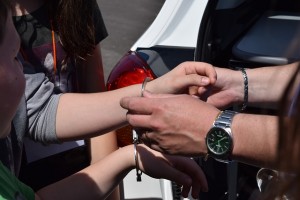Last month, the United States Supreme Court addressed whether police can require drivers to take a “deep-lung” breath test without a search warrant. Three cases out of Minnesota and North Dakota were joined and brought before the Court. These states have laws that make it a crime for drivers to refuse to take a breathalyzer, urine, or blood test. Eleven other states have similar laws, including Alaska, Florida, Hawaii, Indiana, Kansas, Louisiana, Nebraska, Rhode Island, Tennessee, Vermont and Virginia. A majority of the justices questioned whether these laws criminalizing refusal are constitutional, in light of an individual’s Fourth Amendment right to be free from unreasonable searches and seizures.
Generally speaking, the police cannot search a driver or their car after an arrest without first getting a search warrant, unless it is for their own personal safety or to preserve evidence. In 2013, the Supreme Court ruled that police cannot conduct blood tests for drunken driving without first obtaining a warrant. However, some justices remain hesitant to apply the same rule to the breathalyzer test, because it is less intrusive than drawing blood.
Previously in North Dakota, refusal to submit to a chemical test carried only civil penalties, such as the suspension or revocation of one’s license. However in 2013, North Dakota lawmakers passed legislation to make penalties for drunk driving offenses more severe—in part by punishing a refusal to take a breathalyzer test in the same manner as it punishes the crime of driving under the influence.
The groups backing the states’ laws, including Mothers Against Drunk Driving (MADD), have argued that when a person applies for a driver’s license, they give their implied consent to be subjected to a chemical test in the event that they are arrested for suspected drunk driving.
However, several groups backing the defendants, including the American Civil Liberties Union (ACLU) and the DUI Defense Lawyers Association (DDLA), have argued that the government cannot criminalize conduct protected by the Fourth Amendment. One cannot truly give “implied consent” to take a breathalyzer test when they get their license if they know that they will face criminal sanctions for refusing to take the test. The DDLA argued that there are better ways to deter drunk driving, including creating an electronic warrant system, setting up sobriety checkpoints, providing alcohol abuse treatment, and requiring the use of ignition interlock devices for convicted drunk drivers.
So how did the justices come down on the issue? Justice Samuel Alito was the only justice who seemed to be strongly in favor of criminalizing refusal, and he emphasized that breathalyzer tests are only a minimal intrusion. He expressed that the only reason people don’t want to submit to a breathalyzer test is because they don’t want their blood alcohol measured, it is not that they object to blowing into a straw. Justice Kagan seemed to agree with this line of reasoning, noting that police have an interest in testing a driver’s breath as quickly as possible, before their blood alcohol content (BAC) goes down.
Ultimately, the states were unable to come up with a persuasive reason why police cannot secure a warrant while transporting suspects to the police station or hospital for testing. Forty states now utilize electronic warrant systems.
Although it is not a crime to refuse to take a breathalyzer test in New Jersey, there are harsh civil penalties, including fines, motor vehicles surcharges, a long suspension of driving privileges and special sentencing enhancements if the refusal occurs within a school zone. A refusal can also be used to draw an inference of guilt in a DUI trial. If you are pulled over in New Jersey for a suspected DUI, the police can detain you and bring you to a hospital where staff may draw blood.
New Jersey DUI/DWI Lawyer Edward M. Janzekovich Represents Drivers Who Have Refused Chemical Testing
If you were arrested for drunk driving and refused to submit to chemical testing, you are likely facing steep penalties. In addition to a DWI charge, you are probably also facing penalties for refusing to take the breathalyzer test. To speak to an experienced New Jersey DUI lawyer and begin building your defense, call the Law Office of Edward M. Janzekovich at 732-257-1137 or contact us online today. We represent clients throughout New Jersey, including Ocean County, Monmouth County, Mercer County, Middlesex County, Union County and Somerset County.



 In New Jersey, if you are convicted or
In New Jersey, if you are convicted or